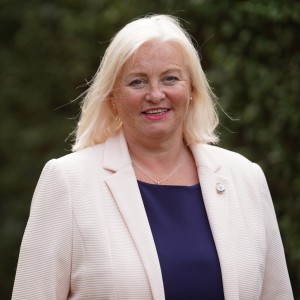Introduction
 As part of her extended tenure, the Scottish Veterans Commissioner (SVC) has undertaken a short review of support for the armed forces bereaved community in Scotland. This review picks up some of the areas outlined in Community and Relationships: Anything but Uniform in respect of the bereaved community and those who support them.
As part of her extended tenure, the Scottish Veterans Commissioner (SVC) has undertaken a short review of support for the armed forces bereaved community in Scotland. This review picks up some of the areas outlined in Community and Relationships: Anything but Uniform in respect of the bereaved community and those who support them.
This review has focused on the support available to members of the bereaved community in Scotland, including from the statutory and third sectors. On that basis – and while fully appreciating the crucial role of the services themselves and of the MoD in the ‘transition’ phase and beyond – this review did not look in detail at the immediate support offered on the death of the service person.
To inform this report the Office of the Scottish Veterans Commissioner has carried out a programme of external engagement with a range of stakeholders, alongside investigation and analysis of relevant research and data. Due consideration has also been given to statutory policy and guidance at both national and local levels. This has included looking at any data available on the armed forces bereaved community (UK and Scotland), reviewing grant / funding programmes in support of this community and looking at sources of direct support available to the bereaved community. This has included considering the extent to which that support is visible and accessible to those who may need it.
The military bereaved community in the UK refers to individuals and families who have lost a loved one who has served in the Armed Forces (including Reservists).
This includes spouses, partners, children, parents, siblings, and close relatives and friends of deceased service personnel. Some may be bereaved at an early age while others, including of course veterans themselves, may be bereaved much later in life. Whether the death occurs while the person is still serving, or after they have left service and become a veteran, all of those affected are part of the military bereaved community.
Through the research and investigation that supported the previous thematic reports published by the Scottish Veterans Commissioner it has been vital to focus on the challenges and barriers faced by the veteran community in Scotland, as well as promoting and celebrating the positive contribution they make to civilian society.
As a result of that work, it has become clear that it is equally important to ensure that the community surrounding our veterans is not forgotten. The spouses, partners, parents, and children, alongside extended family and friends, provide the roots and stability needed to support our armed forces and they deserve our lifelong respect and help. In times of bereavement, the extended armed forces and veteran community should be supported through all the challenges that the death of a loved one brings.
As global security challenges evolve and the potential for future conflicts remains ever-present, Scotland must be prepared to support those who may face military bereavement in years to come. The lessons learned from supporting families affected by operations in Iraq, Afghanistan, and other deployments must inform our preparedness for future casualties that may arise from emerging threats or unforeseen conflicts.
In preparing for the future, we must ensure that military families - who provide such essential support to our serving personnel - are in turn looked after properly when loss of life occurs. When Service ends in death, families deserve comprehensive, coordinated, long-term support that honours both their loss and their ongoing needs as they rebuild their lives outside the military system that once defined them.
This short report looks at the existing services that are available and the lived experience of anyone who, sadly, has to access those services. It aims to encourage a wider conversation about what works well and what could be improved to provide the bereaved community with reassurance and support for as long as they need it.
It is essential that effective support for the military bereaved is not seen as just a moral imperative. It is a critical component of the covenant between society and those who serve it so well.



